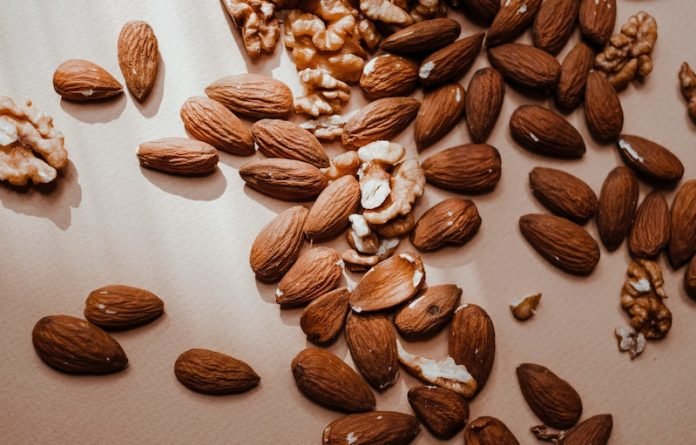
In a study from Imperial College London and elsewhere, scientists found that people who eat at least 20g of nuts a day have lower risks of heart disease, cancer, and other diseases.
They reviewed all current studies on nut intake and disease risk and revealed that 20g a day – equivalent to a handful – could cut people’s risk of coronary heart disease by nearly 30%, cancer risk by 15%, and premature death risk by 22%.
An average of at least 20g of nut intake was also linked to a reduced risk of dying from respiratory disease by about 50%, and diabetes by nearly 40%.
In the study, researchers analyzed 29 published studies that involved up to 819,000 people, including more than 12,000 cases of coronary heart disease, 9,000 cases of stroke, 18,000 cases of cardiovascular disease and cancer, and more than 85,000 deaths.
The researchers found that nut consumption was linked to a reduction in disease risk across most of them.
The study included all kinds of tree nuts, such as hazel nuts and walnuts, and also peanuts – which are actually legumes. The results were in general similar whether total nut intake, tree nuts or peanuts were analyzed.
What makes nuts so potentially beneficial is their nutritional value.
Nuts and peanuts are high in fiber, magnesium, and polyunsaturated fats – nutrients that are beneficial for cutting cardiovascular disease risk and can reduce cholesterol levels.
Some nuts, particularly walnuts and pecan nuts are also high in antioxidants, which can fight oxidative stress and possibly reduce cancer risk.
Even though nuts are quite high in fat, they are also high in fiber and protein, and there is some evidence that suggests nuts might actually reduce the risk of obesity over time.
The team also found that if people ate on average more than 20g of nuts per day, there was little evidence of further improvement in health outcomes.
If you care about nutrition, please read studies about folate (vitamin B9) deficiency linked to higher dementia and death risk, and this diet could help heart disease patients lose weight.
For more information about nutrition, please see recent studies about how much vitamin C you need for better immune health, and results showing Vitamin K2 supplements cannot slow calcium buildup in heart valve.
The study was published in the journal BMC Medicine and conducted by Dagfinn Aune et al.
Copyright © 2022 Knowridge Science Report. All rights reserved.



